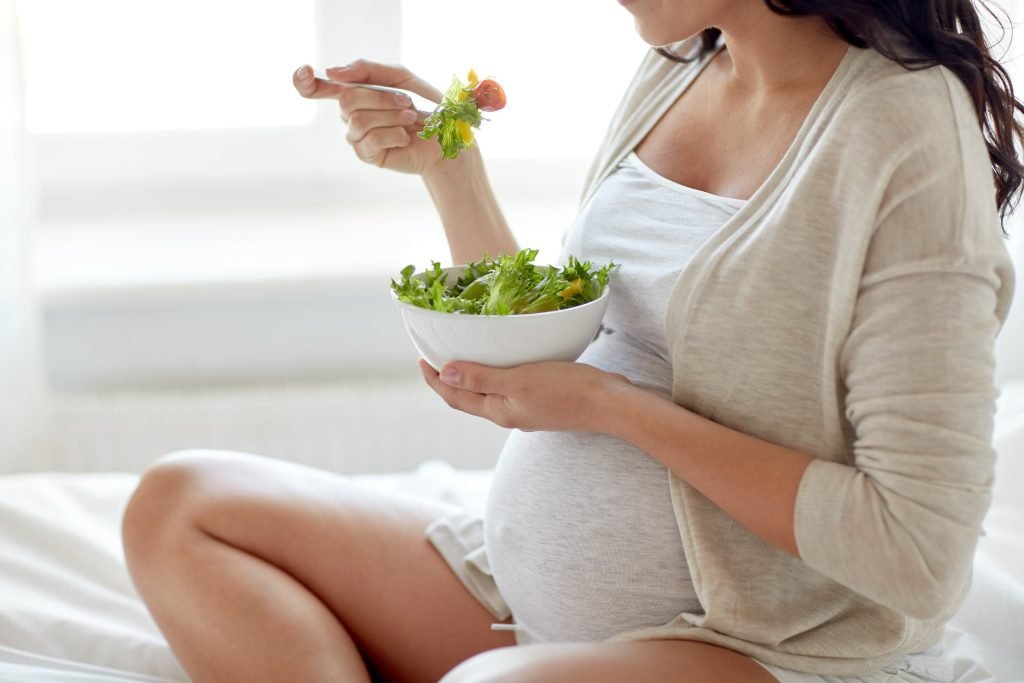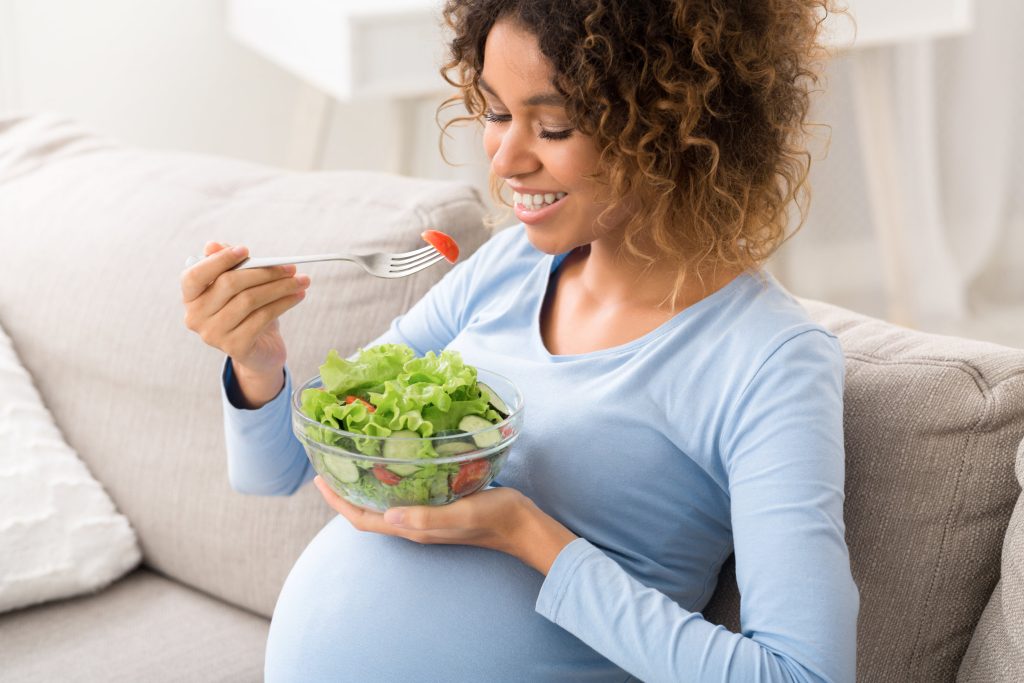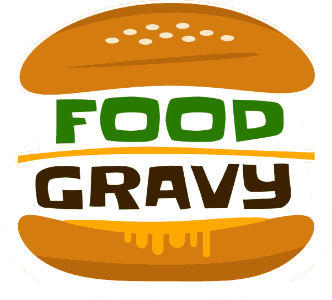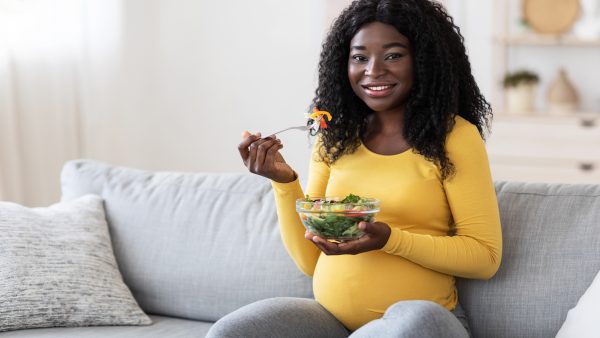You have just learnt that you are pregnant. The number of feelings you are undergoing are numerous and crazy. As an expecting mother, it’s normal for you to be excited and nervous, all at the same time. But as a mother who is dependent on a plant-based diet, you must be scared. The internet and the people around you may also be a source of your anxiety. You are worried if your diet is good enough for you and the growing child inside you. It’s normal to hear from sources that an expecting mother needs to have animal products to meet their dietary needs. However, things have changed for the good now. A well-planned plant-based diet can do wonders for an expecting mother and her growing fetus. The secret is to plan it well and plan it smartly.

I would not say that the planning journey is convenient and lie to your face. However, the fact is, planning is crucial and can be challenging given the new nature of the trend. Moreover, it will be comparatively difficult to find genuine literature that you can depend on for reference. This being said, the benefits of a well planned plant-based diet can be advantageous in the end.
We at FoodGravy are trying to normalize plant-based diets. This blog can be your go-to literature for a successful plant-based diet during pregnancy. The journey becomes easier once you understand what food groups and nutrients your body will need during pregnancy and why. Eventually, you will find a plant-based substitute for animal products and even better at times.
Some Basics To Follow In Plant-Based Pregnancy
Meet Your Increased Energy Needs:
Irrespective of what diet you follow, your energy needs will have to be catered to properly during pregnancy. It would help if you had more energy while growing a child within. However, this is not to the extent of increasing your calorie intake significantly. Calorie requirements do not change during the first trimesters. So it is pointless, rather harmful, to enrich your calorie intake. Some women may suffer from morning sickness and find it difficult to stomach food. You will have to add up an additional 300-400 calories during your late second and third trimesters. An extra healthy snack could quickly fill up this requirement. It could be hummus and a gluten-free soy toast. Your doctor might suggest additional intake if you lead a very active lifestyle.
Increase Your Plant Protein Intake:
Protein does wonders to your body, more so when you have a growing fetus within you. It does miracles to the babies brain and eyesight development. It helps in good blood flow and supply in the case of the mother. Most people get their daily quota through their regular meals. However, you might have to be extra mindful to avoid any shortcomings. Increase the intake of plant-based protein foods in your diet. It is said that a pregnant woman needs to include a minimum of 25gms of protein in her diet for a healthy pregnancy.

Some excellent examples of plant-based protein sources are lentils, quinoa, tofu, nut butter, beans, etc. Fortunately, supermarkets have soy yoghurts and spread in their aisles now. However, you can also make it a point to learn how to prepare them yourself at home. This will be a great way to understand how much protein goes into your body.
Calcium And Vitamin D Are Not To Be Ignored:
Calcium and vitamin D needs do not increase during pregnancy. Most people who consume animal products get their quota without having to plan it. However, this might not be the case for someone who is following a plant-based diet. You will have to plan how to include more Calcium and Vitamin D to avoid deficiencies.
Calcium and vitamin D play a significant role in the child’s bone and tooth development. A deficiency might deplete the mother’s calcium deposits. Lack of which leads to major bone-related problems after delivery. Vitamin D is usually found in sunlight. You can depend on the same or consult your doctor for supplements if you do not stay in a sunny area.
Good plant-based calcium sources are broccoli, almonds, calcium-fortified milk products, oranges etc. Make sure you get your daily quota of both these food groups throughout your pregnancy.
Vitamin B12 Is Not To Be Ignored:
Plant-based foods are not usually high in vitamin B12 unless they are fortified. This is why most plant-based food practitioners are found to be deficient. However, this deficiency should not be ignored during pregnancy as Vitamin B12 plays a significant role in the child’s development. Therefore, your doctor might suggest daily supplements in increased doses to avoid any deficiencies and better absorption.
Understand The Requirement Of Prenatal Vitamins:
A well planned & strategic plant-based diet is the trick to include all necessary vitamins and minerals required during pregnancy. This being said, there will still be some vitamins and nutritional needs like Vit B12 that will still be deficient. This is where prenatal vitamins come into the picture. Prenatal vitamins include two major elements; folic acid and iron. Both of these are key to the child and the mother-to-be. In addition, prenatal vitamins are designed to help the child grow and also in a smooth delivery.
Good sources of plant-based foods rich in prenatal vitamins are enriched bread, pasta and green leafy vegetables. Fortunately, plant-based diets are high in folate, but supplements are still advisable to avoid deficiencies.
Things To Avoid During Plant-Based Pregnancies
Raw Sprouts And Unpasteurized Juices:
An expecting mother should avoid raw sprouts and unpasteurized juices because they carry the risk of contamination. Raw sprouts are known as a rich source of fibre and protein. However, they can also have fungus, which can contaminate the delicate system of a nurturing mother.
Alcoholic Drinks:
There can be many contradictory discussions regarding alcohol consumption during pregnancy. However, you will most certainly not find literature that suggests you consume alcohol. The amount of destruction or risk is up to debate. This is why it’s best to avoid the risk and skip the guilt altogether. Make herbal and fruit infused teas instead. This will keep you hydrated and also help in improving your mood.
Caffeinated Drinks:
The safe level of caffeine consumption is still not precise. However, 200 mg of caffeine is permissible, according to doctors. It’s better to keep your consumption lower than the allowable limit.
I am a tea lover and was personally bothered when my gynac told me so. I had strategically divided my quota of tea throughout the day into smaller cups. This kept my craving at a low and also allowed me to cherish my cup of tea.
Why Plant-Based Diet During Pregnancy Is A Good Idea?
Studies suggest that plant-based diets reduce the risks of blood pressure and diabetes. These can be significant problems during pregnancies. I have personally suffered from high Blood Pressure during my pregnancy. Weight gain is another concern that you can steer clear of with a plant-based diet. Plant-based diets are very well planned; hence the chances of binge eating reduces. This subsequently keeps your cholesterol at a low and keeps your heart healthy.
Aren’t these good enough reasons to keep you on track with your plant-based pregnancy? Most importantly, you are bringing a miniature version of yourself into the world. You deserve to make your own healthy choices for her without any guilt.









Let's discuss here - Share your thoughts and queries!